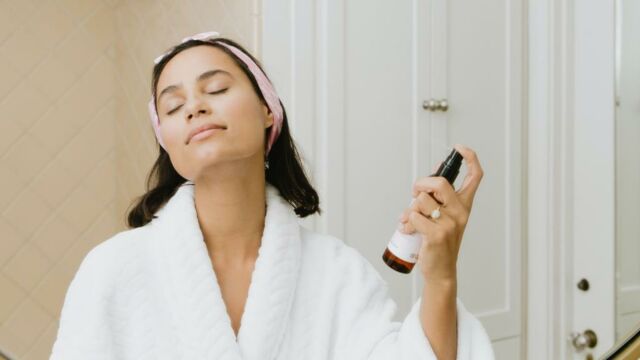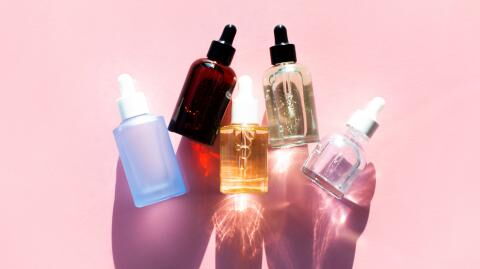Acne is one of the most common skin conditions out there. Whether it’s before a big event or that time of the month, most people would have experienced a pimple. But wouldn’t life be so much better if we could prevent acne?
Discover our latest podcast
What is acne?
Acne is caused by four things:
- The overproduction of sebum
- Inflammation in the hair follicle
- An overproduction of P. acnes bacteria
- The buildup of dead skin cells
All of these factors or a combination of factors can contribute to the creation of blackheads, whiteheads, papules, pustules and cysts on the face. For some, acne is worse than others, but a dermatologist appointment can determine which factors cause your acne or if there are any underlying conditions involved.
No matter if your acne is cystic, hormonal, or just the run of the mill breakout, there are several ways to reduce or prevent acne:
1. Washing your face
Washing your face once or twice daily will help cleanse the skin of any SPF or makeup and will help to remove excess oils and dirt. For normal, dry and sensitive skin types, a gentle cleanser is recommended. But, oily skin types may want to opt for a foaming cleanser instead. If you suffer from fungal acne, a cleanser with benzoyl peroxide will help to ease the problem.
2. Over exfoliation
While some exfoliation can help acne, over-exfoliating the face can strip away all the skin’s oils and create irritation and inflammation. Stripping the skin of all its oils can dry it out and cause the skin to produce more oils that contribute to acne.
Instead, try exfoliating with a chemical exfoliant such as lactic acid just twice a week.
3. Reduce stress
Stress often triggers acne-causing inflammation. To reduce stress, try:
- Meditation
- Yoga
- Regular exercise
- Taking a hot bath
- Spending time in nature
- Engaging in hobbies
4. Keep your cosmetic products clean
When dirty, our makeup brushes and sponges can start to harbour acne-causing bacteria. Instead, make sure to wash these products regularly and ensure they are dry before use.
5. Prescription treatment
If you have hormonal or cystic acne, a doctor or dermatologists prescription may be the best solution. Depending on the cause of your acne, you may be prescribed birth control pills, retinoids or even antibiotics.
6. Wear SPF when in the sun
Sun exposure can cause both UVA and UVB damage to the skin. Any sunburns caused by this exposure and sun damage can cause the skin to produce more oils, resulting in acne.
Additionally, some prescription retinoids and other over the counter skincare products can be sensitising to the skin when exposed to sunlight, and SPF can help prevent this.
7. Cut back on foods linked to acne
The relationship between food and acne is a debatable one, but a growing body of research suggests that certain foods can trigger acne in some people. Acne triggering foods include:
- Foods with a high glycemic index
- Processed carbohydrates
- Dairy
If you believe your diet may cause your acne, try cutting these food groups out and see if your skin improves.
8. Wash your hair regularly
Excess oils in the hair can travel to the face, resulting in acne. Regularly washing the hair can prevent the buildup of excess oils and reduce acne, especially around the hairline.
9. Try topical treatments
Topical skincare products like benzoyl peroxide and salicylic acid can both help to reduce acne. These products are not prescription strength but can help to reduce and prevent mild acne.
10. Consider laser or light therapy
If your acne is particularly persistent, consider seeking a dermatologist or aesthetician for laser or light therapies that target P. acnes bacteria.















